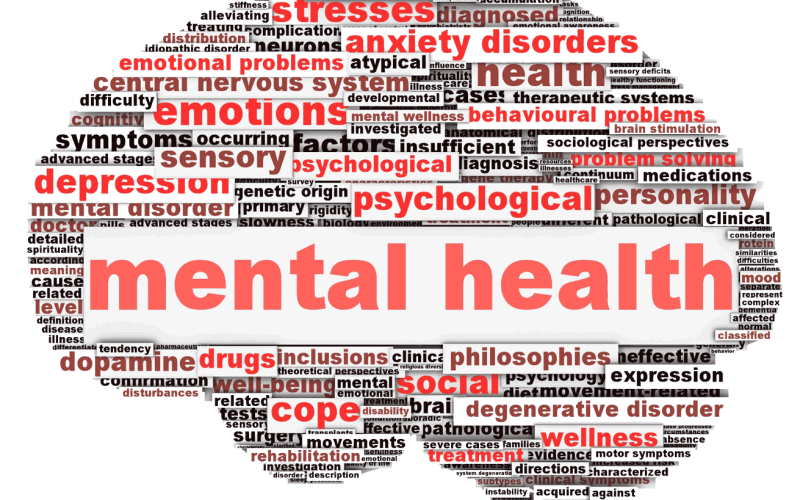Introduction
The urgent need for 24/7 mental health care is critical. Many people search for help during tough times. But some mistakes can slow down healing. Whether you require immediate help or steady guidance, knowing what to avoid matters. In this article, we examine the common errors in getting 24/7 mental health support. We help you identify the right services and their benefits. This will give you the skills needed to make sure you or a loved one receives quality care. Find out how to gain access to vital resources and the important role AI has in improving mental health care systems. Whether you are a beginner or have some experience, we will look into factors that help in a strong mental health path.
24/7 Mental Health Services Overview
24/7 mental health services give constant support to individuals facing psychological distress or crises. This service is vital, as it offers aid when other resources are unavailable. They act as a safety net for those who need it most.
Availability around the clock is very important. Mental health crises can happen at any hour, and getting help 24 hours a day helps reduce harm. Nearly 20% of adults in the US face mental illness yearly, many need quick intervention. So, 24/7 mental health services allow individuals to seek help at any time.
Such services handle various crises like suicidal thoughts, anxiety, substance abuse, and other urgent concerns. Quick response can stop worsening conditions and promote recovery. Studies show that access to these services decreases emergency room visits and hospital stays, improving outcomes.
In conclusion, 24/7 mental health services are vital for immediate aid to those in crisis. They ensure people with mental health challenges find the necessary resources at all hours. As we check the seeking support journey, knowing the common issues in these services is crucial.
Common Mistakes When Seeking 24/7 Mental Health Support
Many individuals rush to find 24/7 mental health support. They often make mistakes affecting their recovery. Knowing these traps helps in getting proper care. Here are three common errors to consider:
- First, failing to research the available services is a big mistake. People sometimes choose support systems too quickly. They do not compare programs and providers, leading to wrong matches. A bit of research helps find the best treatment options for their needs.
- Second, choosing services without professional guidance is another error. Online resources seem easy to access, but guidance from trained professionals is important. Unverified platforms can provide poor support and worsen conditions. Professional insight ensures safe and effective help.
- Lastly, many ignore the need for a personal support plan. Mental health needs differ greatly among individuals. What helps one person may not help another. Not considering this can lead to poor support failing to meet one's needs. Personal plans are crucial for healing, allowing progress toward goals.
Benefits of 24/7 Mental Health Support
24/7 mental health support gives quick access to aid in crises. This is vital for those who face acute distress. Being available all the time means that people can find help any time. This can lessen the effects of crises, improving recovery chances. Timely care means proper assistance comes before problems grow, leading to better results.
Having help 24/7 can lessen stigma around getting mental health help. Some may avoid traditional services during office hours. This can slow down their help. With 24/7 services, more can get support. This is key for those who felt wary, as they fear judgment.
Also, 24/7 mental health services meet many mental health needs. This covers those with anxiety, depression, or more severe disorders. This allows support for wide-ranging issues, making care more relevant to personal needs.
The main perks of 24/7 mental health support are quick access, less stigma, and broad support for different conditions. These points showcase these services’ role in boosting mental health. As we look at these benefits, knowing how to reach 24/7 mental health services is key, making sure help is always near.
How to Access 24/7 Mental Health Services
Access to mental health services at all hours is crucial for people facing a crisis or needing immediate help. Knowing how to access these vital resources can make a big difference during tough times.
1. Identifying local resources with 24/7 access: Start by looking for facilities or organizations nearby that have 24/7 support. Many hospitals and community centers have services available all hours. Keeping a list of local services can help you get timely help whenever you need it the most.
2. Utilizing mental health apps: In today’s world, many mental health apps offer around the clock support. These applications often have tools like mood trackers, guided breathing, and quick contact options for sudden assistance. Exploring and trying these can be a good way to build a trusted safety net for mental health crises.
3. Contacting hotlines for immediate support: Hotlines give important help and getting support through trained professionals ready to assist anytime, even late at night. These national and local hotlines provide free, confidential support. They’re there to help assess your state, provide guidance, and connect you to other resources if needed.
By identifying local services, using technology with apps, and calling hotlines, you can build a robust support system through 24/7 mental health resources. This active approach matters in crises and supports overall mental health too.
Challenges in Implementing 24/7 Mental Health Services
The demand for 24/7 mental health services keeps growing. Yet, several challenges exist. Funding limitations present a major barrier. Many mental health facilities struggle to find enough financial resources for round-the-clock operations. Often, mental health gets less financial support compared to other health issues. This results in service disruptions, poor facilities, and a lack of necessary resources for comprehensive care.
Staffing issues further restrict the availability of 24/7 mental health services. There is a shortage of qualified professionals. This makes establishing 24/7 programs tough. The U.S. Department of Health and Human Services reports 35% of people needing mental health treatment don’t receive it due to a lack of access to care providers. This problem limits available clinicians, affecting care quality during peak stress times.
Stigma around mental health shapes public attitudes. It also influences access to 24/7 mental health services. Individuals may hesitate to seek help during non-traditional hours when they feel vulnerable. Studies show many prefer to wait for regular hours to get assistance. This creates challenges for immediate support to people in crisis.
Addressing these challenges is critical for the success of 24/7 mental health services. Sufficient funding, trained staff, and societal attitude changes are vital. Otherwise, these services cannot effectively meet urgent needs. We need sustainable staffing models and awareness campaigns to boost accessibility in 24/7 mental health delivery.
Integration of AI in 24/7 Mental Health Support
Integrating artificial intelligence (AI) into 24/7 mental health services change how people get immediate care. AI-guided chat therapy allows patients to share their needs anytime. Support becomes just a message away. Technology here reduces barriers to care, especially in crisis moments.
AI's advantage in mental health support includes immediate and personalized responses. AI systems analyze user input for better replies. That makes digital therapy feel tailored. Studies show AI can boost engagement, with chatbots hitting 90% satisfaction when handling inquiries.
Even with AI's effectiveness, licensed therapists are vital. AI can manage routine questions, yet complex issues still need expert help. Therapists check AI interactions for accuracy, helping maintain proper care standards for clients.
The blend of AI support with human oversight fixes challenges in offering 24/7 mental health services. AI handles many interactions at once, allowing therapists to concentrate on urgent cases. This change improves workflow, which benefits individuals needing help anytime.
In conclusion, this AI integration in 24/7 mental health support improves accessibility and responsiveness. The technology advances provide immediate and personalized assistance while keeping a necessary link to licensed professionals. As it develops, AI in mental health might become more effective and user-friendly.
Conclusion
When looking for 24/7 mental health support, navigating carefully is key. We looked at common mistakes like not checking qualifications and missing accessibility. Understanding these issues can boost your chances for effective support. Continuous mental health resources help your well-being.
Now that you know more about 24/7 mental health services, action is needed. Research options, contact professionals, and ask any questions you may have. Using what you learned helps ensure you get good help for your mental health needs.
Your mental health matters. With the right tools and guidance, support can empower you. Stay engaged in your journey to wellness. Remember, 24/7 mental health resources exist to help you thrive.
About TherapyTalk.io
TherapyTalk.io offers AI-guided chat therapy supervised by licensed therapists, providing 24/7 mental health support at an affordable rate. This platform matters because it ensures instant, personalized assistance while addressing the diverse needs of individuals seeking continuous mental health support, particularly in moments of urgent need.
Take the first step towards better mental health—discover the innovative support at TherapyTalk.io today!
Search
- Type here to search


